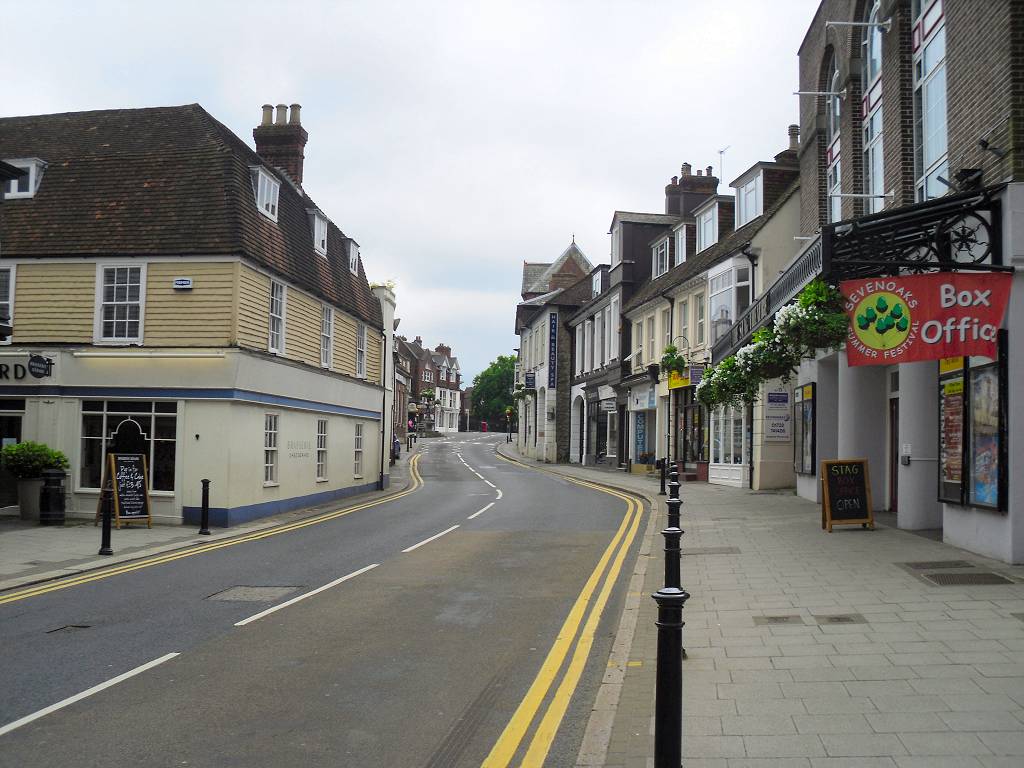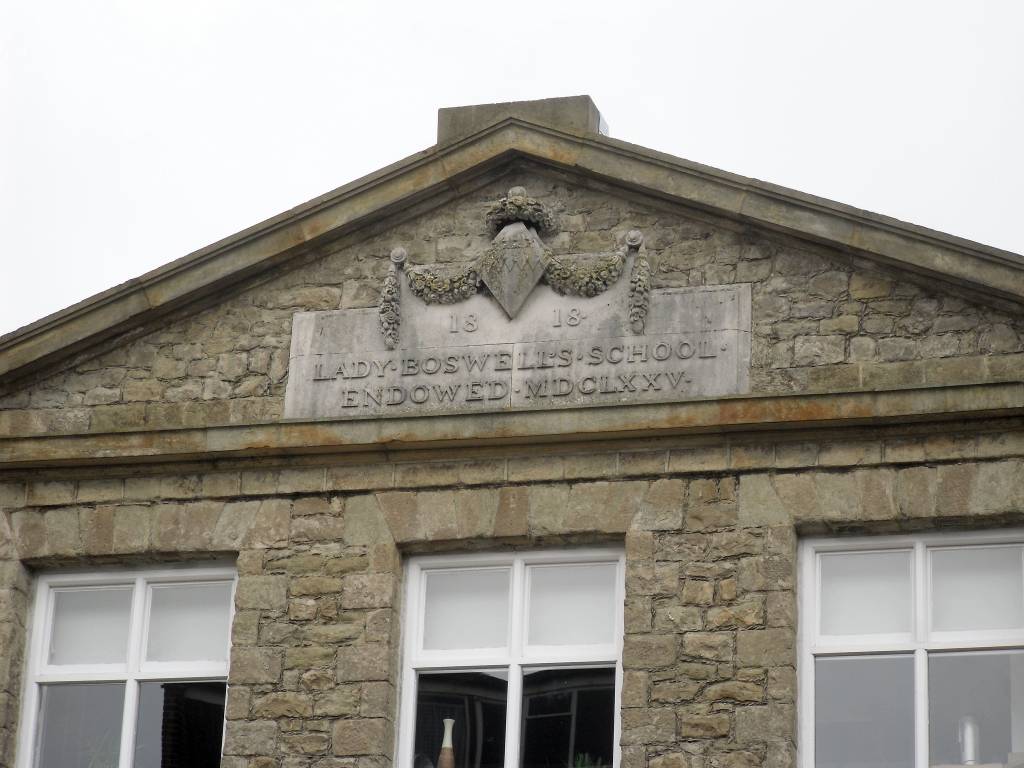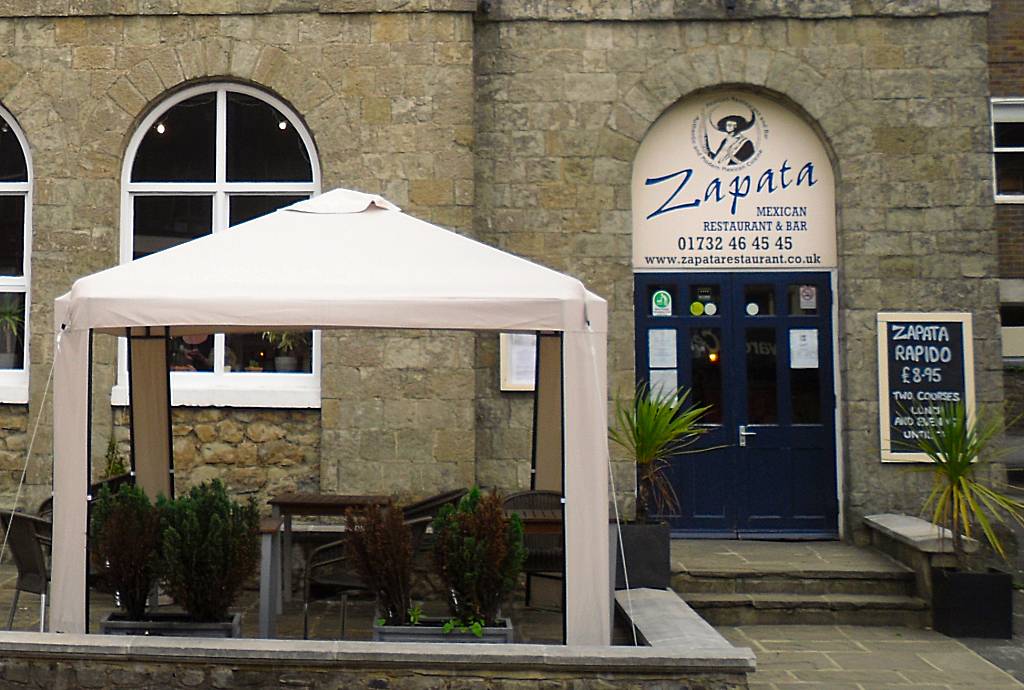
|

|
|
|
|
|
Whitsun
bank holiday
31st May 2010
Sevenoaks and Knole Park
Photos and commentary of my walk to Knole Park
|
This
was one of my shorter walks, but with a discounted* train fare of only
£4.25 return I felt I didn't have to push myself to get value for
money.
I only walked 3.4 miles, but with having to climb some very fierce
hills it sometimes felt a lot further. The effort required to get up
those hills (and also the control needed to walk down the other side)
meant that though the walk was relatively short I still burnt 522
calories to do it.
* Approx 1/3 rd discount using a Network railcard.
|
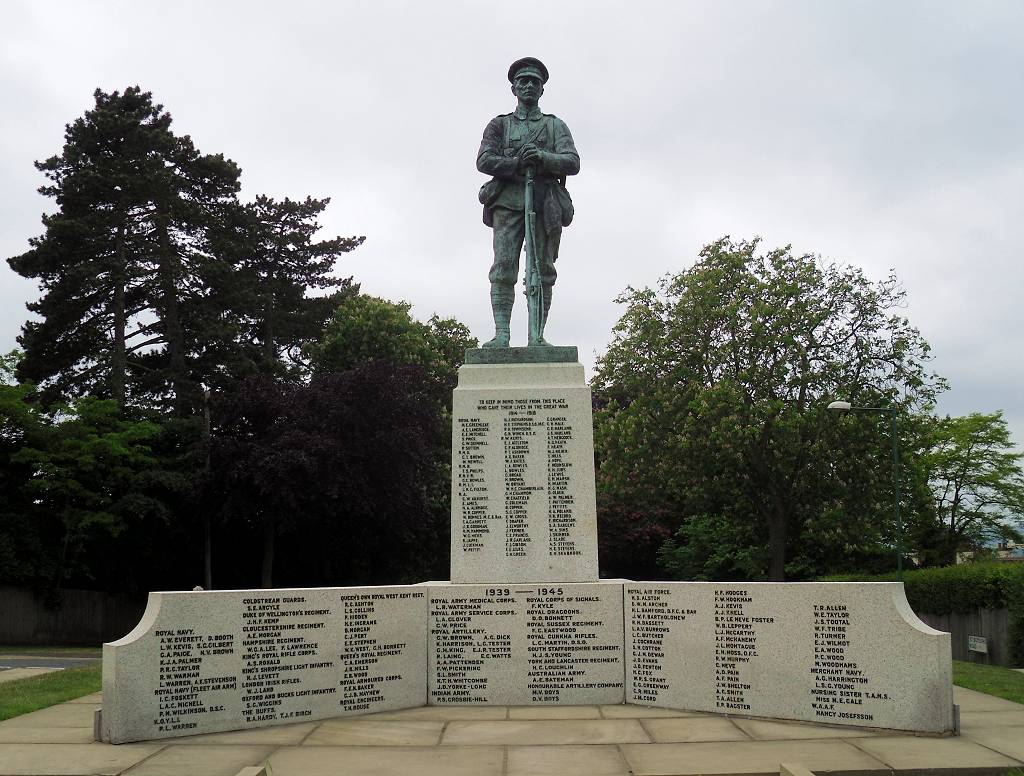 Sevenoaks is only a small
town on the main road between London and Hastings (now bypassed by the
Sevenoaks Bypass). Although the outskirts are modern, the inner parts
still have a slightly olde world feeling to them. The top centre of
this war memorial is not exactly ancient, but it does commemorate those
who fell in World War 2.
Sevenoaks is only a small
town on the main road between London and Hastings (now bypassed by the
Sevenoaks Bypass). Although the outskirts are modern, the inner parts
still have a slightly olde world feeling to them. The top centre of
this war memorial is not exactly ancient, but it does commemorate those
who fell in World War 2.
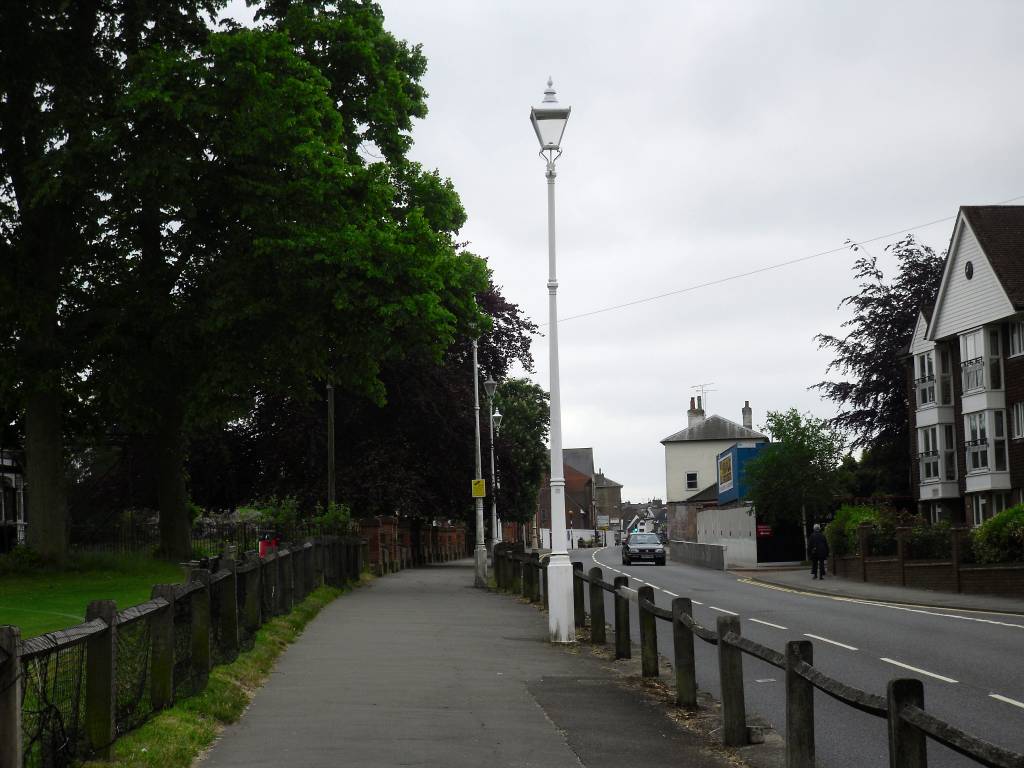 The area immediately
around the war memorial features these old style lamp posts. I presume
they are now electric, but they give the impression they should be gas
lit.
The area immediately
around the war memorial features these old style lamp posts. I presume
they are now electric, but they give the impression they should be gas
lit.
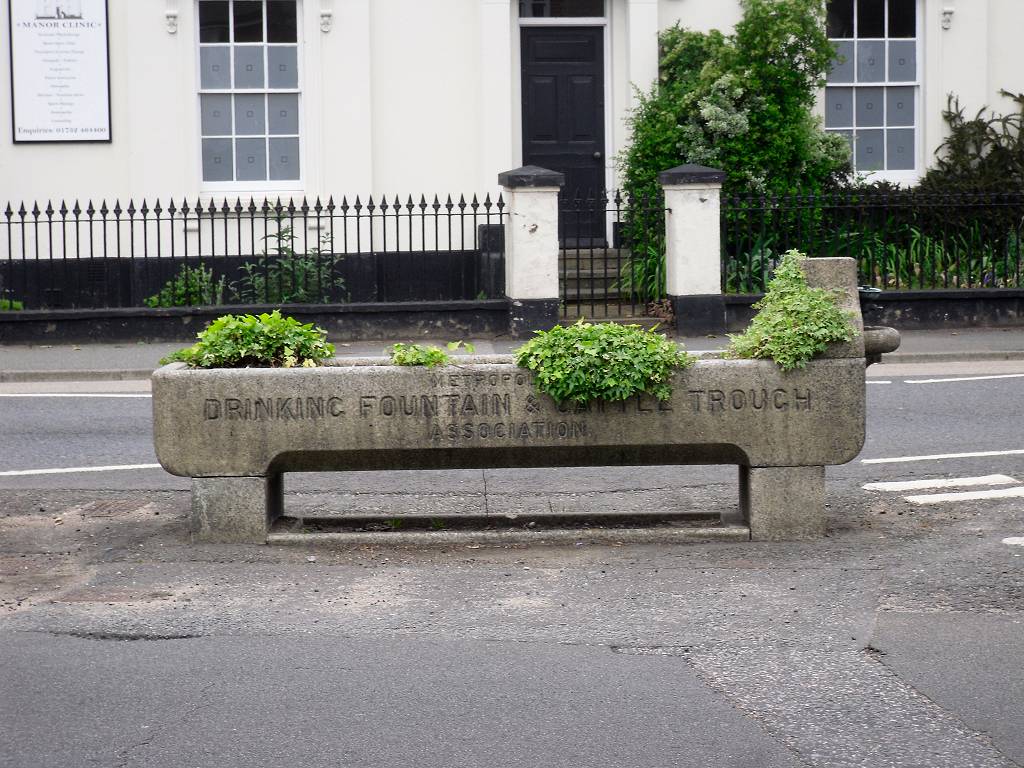
Another old feature is
this "Metropolitan Association" Drinking Fountain And Cattle Trough.
Sevenoaks is not exactly in the great metropolis of London, and I
wonder if it an original feature. It is a very standard design, and
there was once an identical one in front of The George public house on
the borders between Catford and Lewisham.
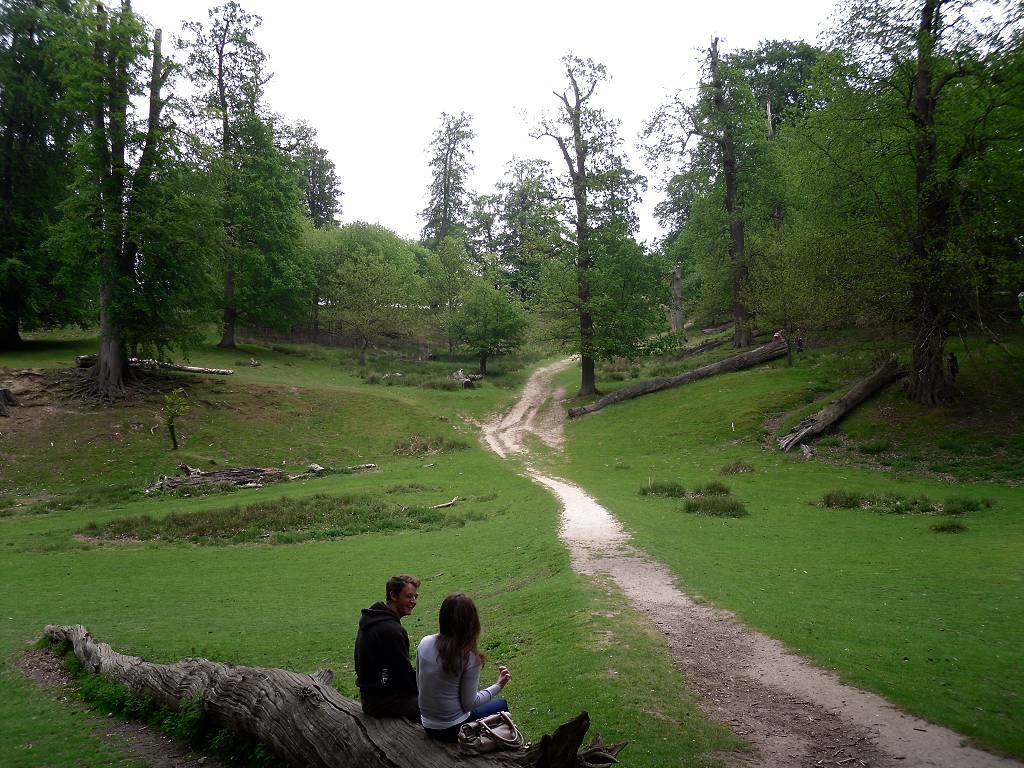
After walking through the Sevenoaks Eco park this was my first view of
Knole Park. The path from the bottom right of the picture goes down
reasonably steeply to the centre of the picture, and then goes up very
steeply. It is hard to appreciate the steepness in this picture, but a
later picture does give some clue as to the difference in heights
between the top and the bottom of this U shaped valley that was
originally gouged out by a glacier if my schoolboy geology lessons are
remembered correctly.
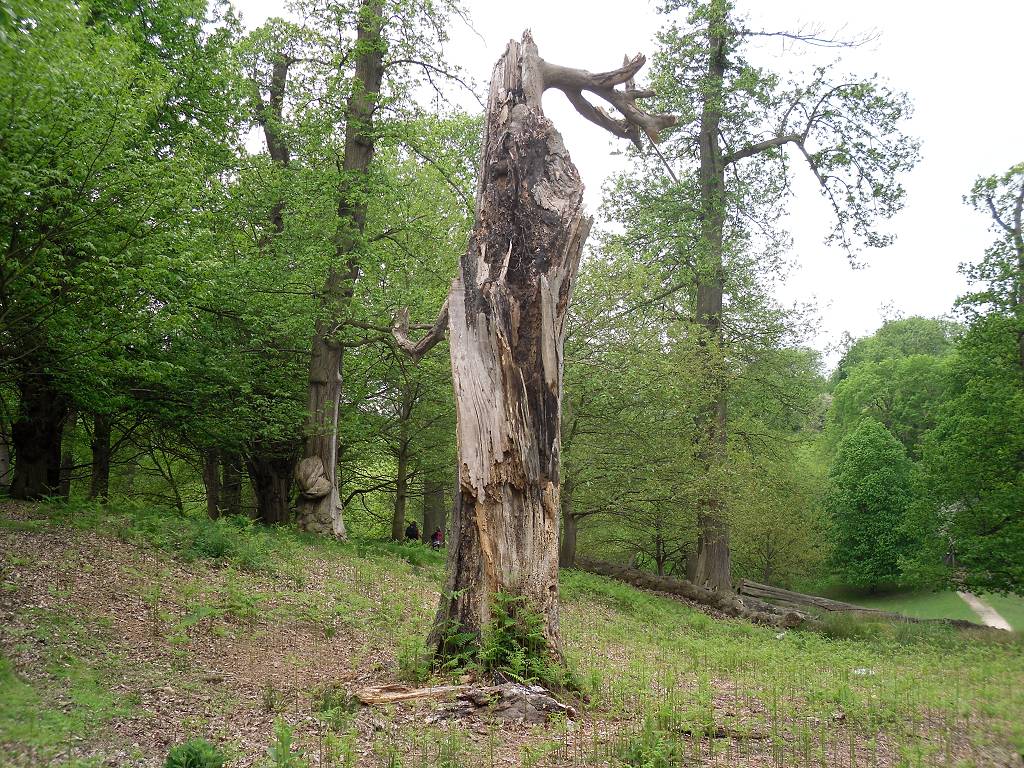
Knole Park is home to many fallen
trees. Many were felled by storms, but this one appears, to my
untrained eye, to have been felled by lightning. As is the current eco
trend, most of the fallen trees have been left in situ for the benefit
of assorted wildlife. On the far right of this picture. about a quarter
up from the botton, can be seen the path I came up. It gives some sort
of impression as to the height I had to climb to photograph this tree,
and I was still not at the top when I took this picture
!
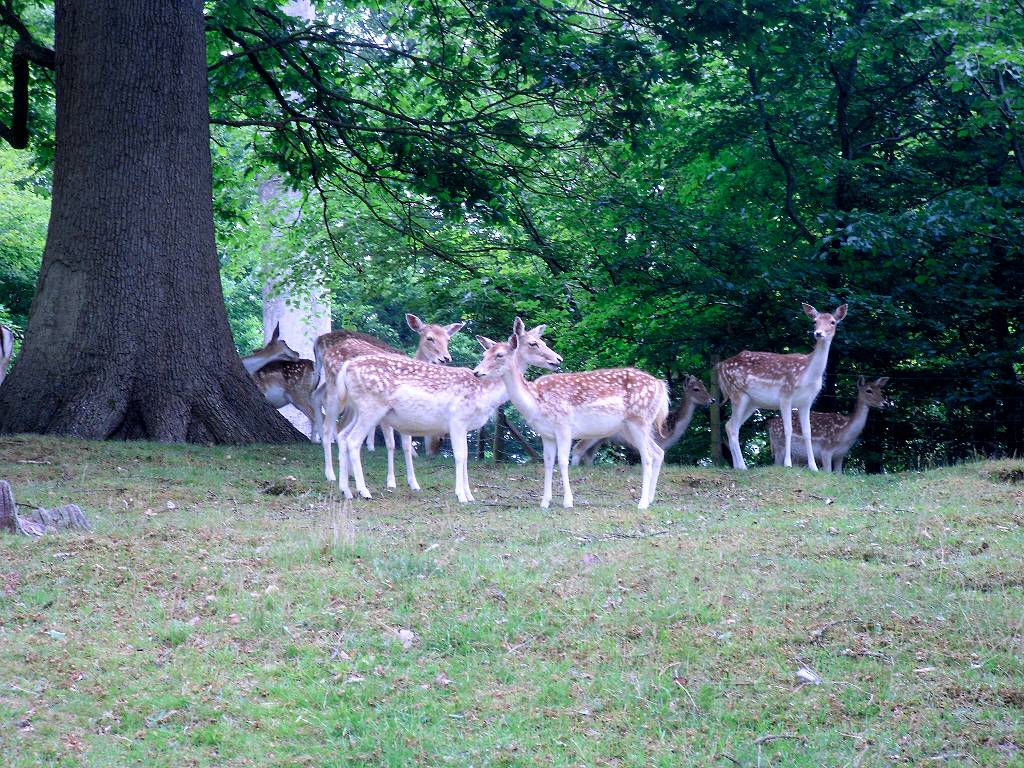
One
of the things that attracted me to Knole Park was that it is home to
wild deer. I can't recall the circumstances, but I had been there once
before, and although I cannot recall going any futher than the
entrance, I do recall seeing some deer before. This time I was not sure
that they would be easy to find, but it turns out that assumption was
very wrong. I had only walked for some 10 or 15 minutes before I came
across the first, and there were loads of them in very clear view
almost everywhere else I looked on my short walk in the
park.
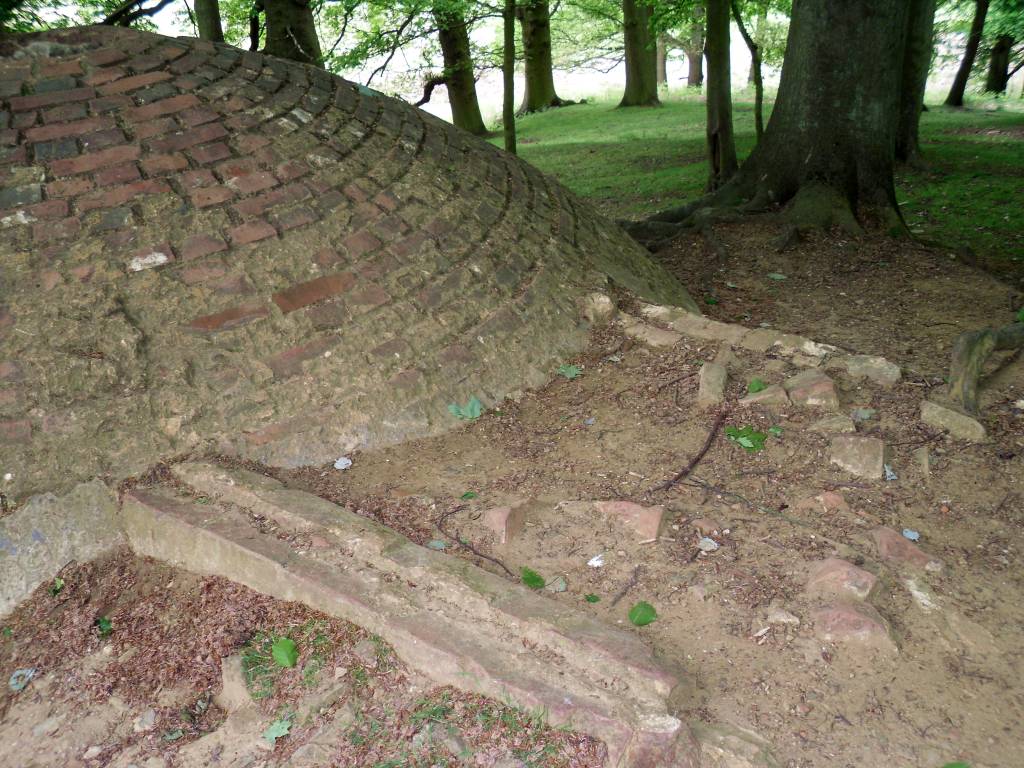
This picture is of a (now
mostly buried) igloo shaped ice house. Initially I thought it was the
remains of a civil defence structure, probably a machine gun post.
According to the Knole Park National Trust website there is a civil defence structure
somewhere in the grounds, but I am sure this is the ice house that is
also
mentioned.
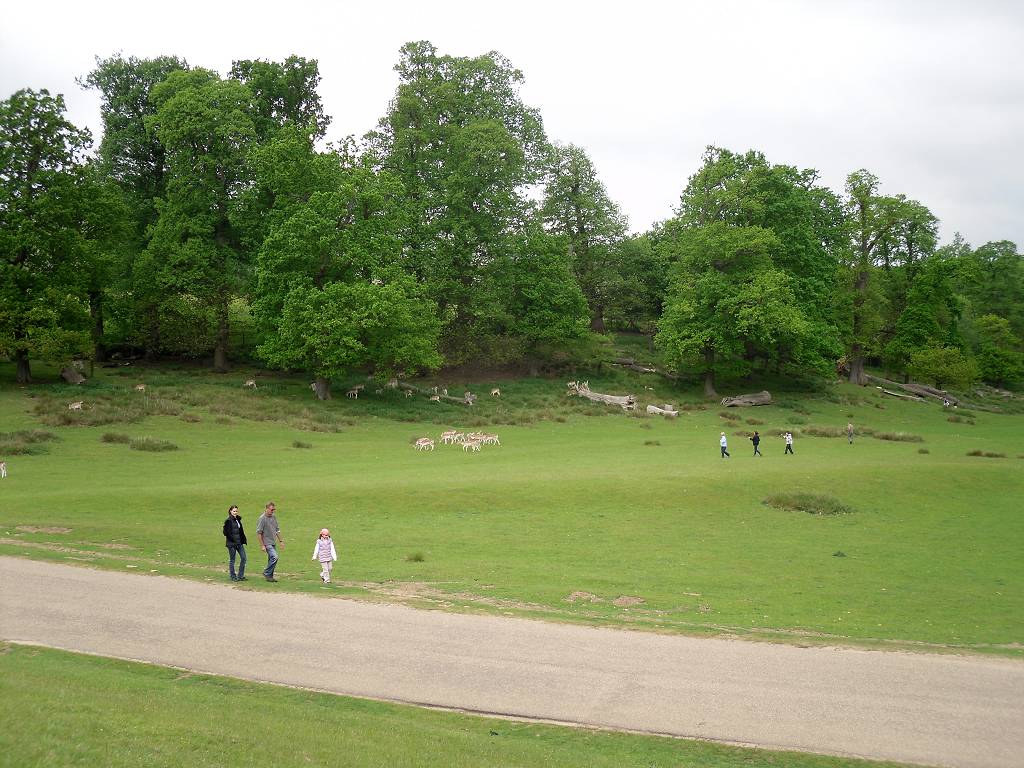
People,
trees and deer.
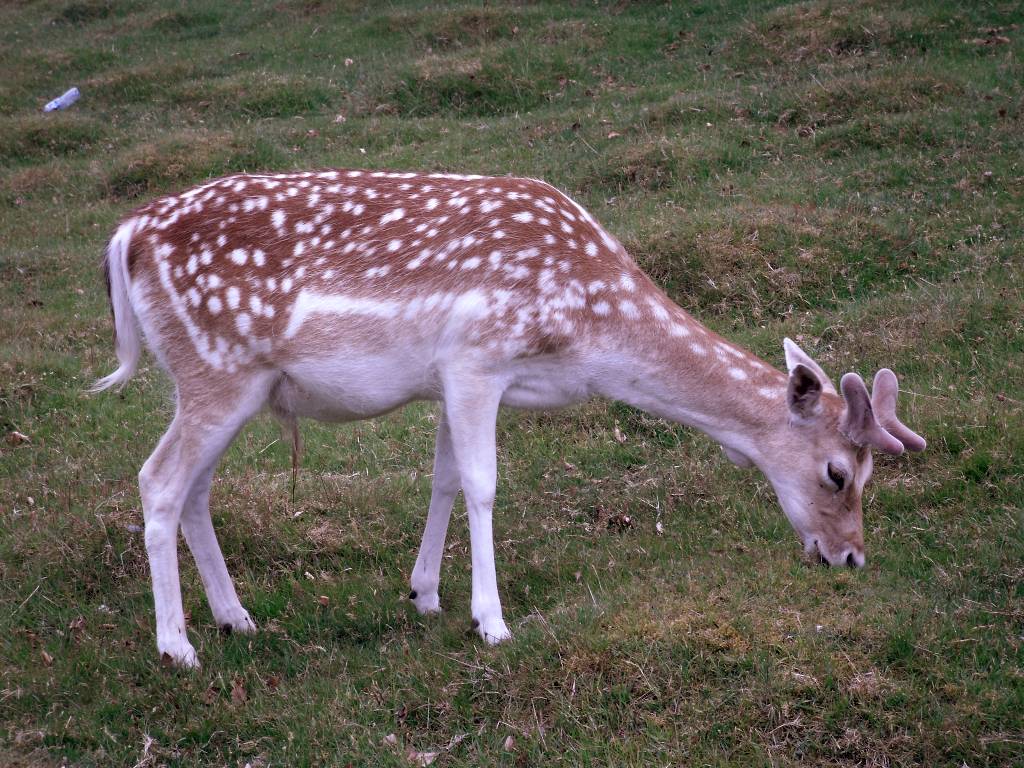 The deer in Knole Park
are not tame, but they are so used to visitors that it is possible to
approach them quite closely if you are careful. Many appered to be
quite young despite already having small velvet covered anttlers. This
one, like many others, seems to have the shrivelled remains of the
umbilical cord still dangling from it's
belly.
The deer in Knole Park
are not tame, but they are so used to visitors that it is possible to
approach them quite closely if you are careful. Many appered to be
quite young despite already having small velvet covered anttlers. This
one, like many others, seems to have the shrivelled remains of the
umbilical cord still dangling from it's
belly.
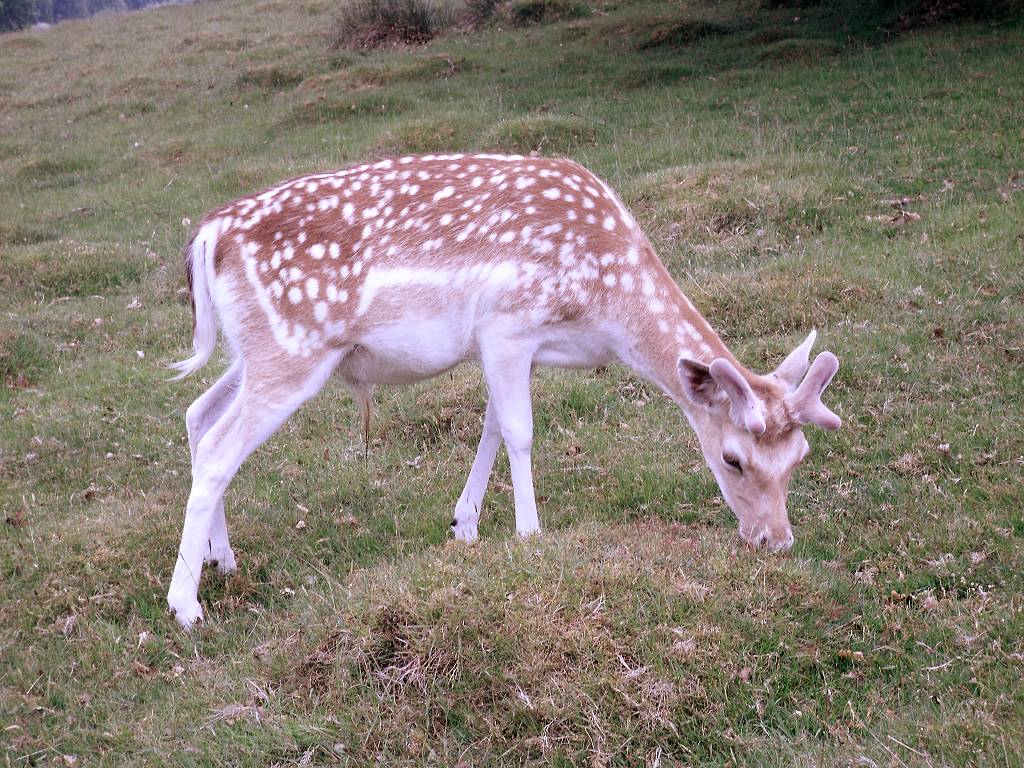
Here's another view of the same animal with the remains of the umbilcal
cord more easily visible.
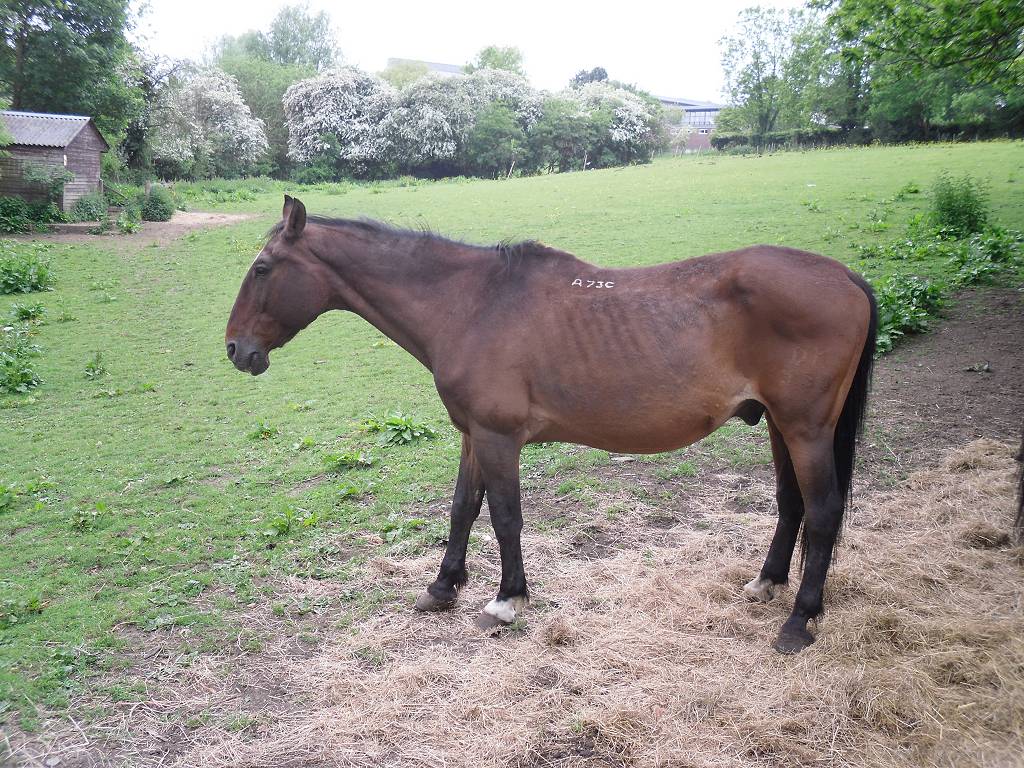
Adjacent to the park itself is a field with a horse in
it.........
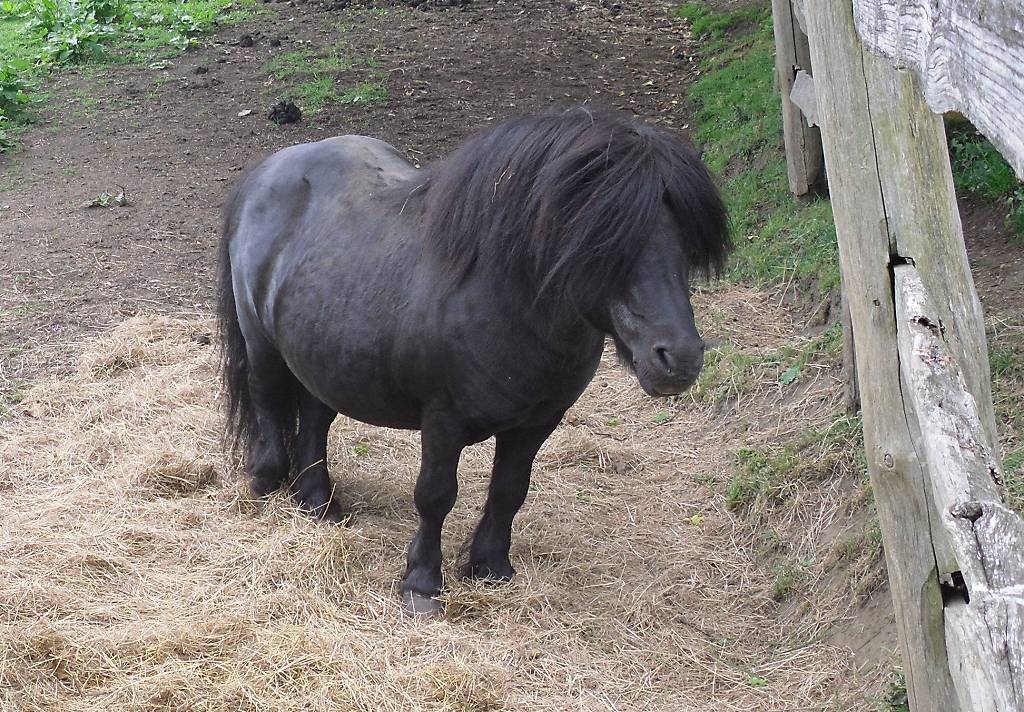
........and a Shetland pony
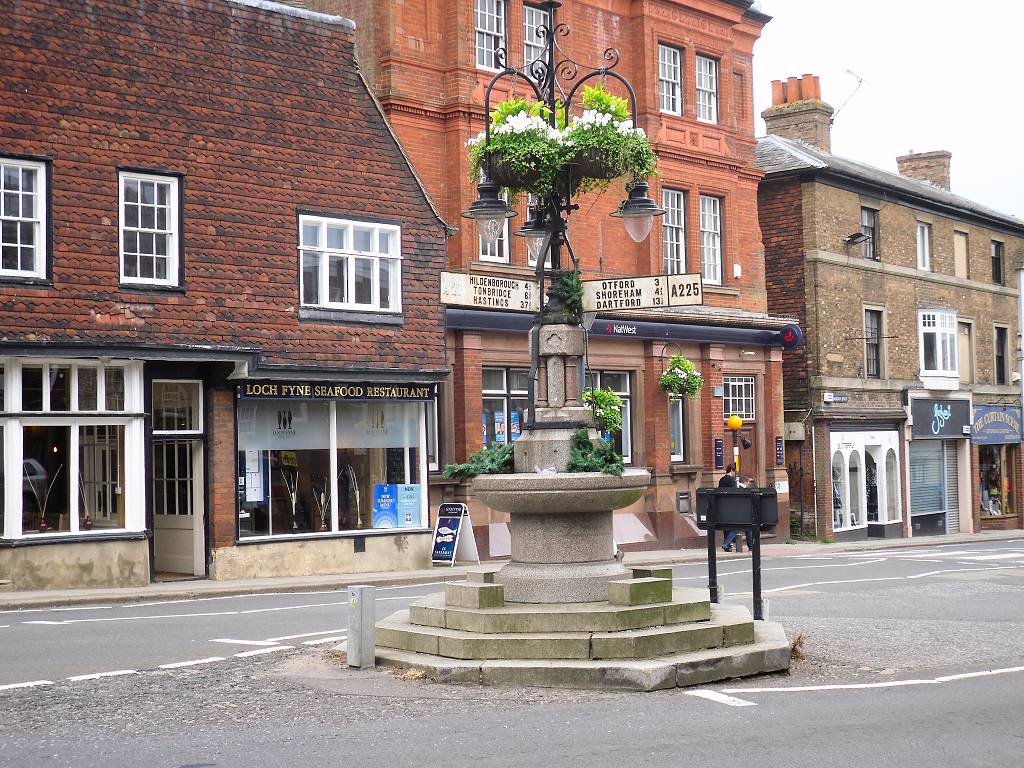
On the way home again I walked through the centre of Sevenoaks.The
inner part of the town retains many heritage features including this
ornate signpost.
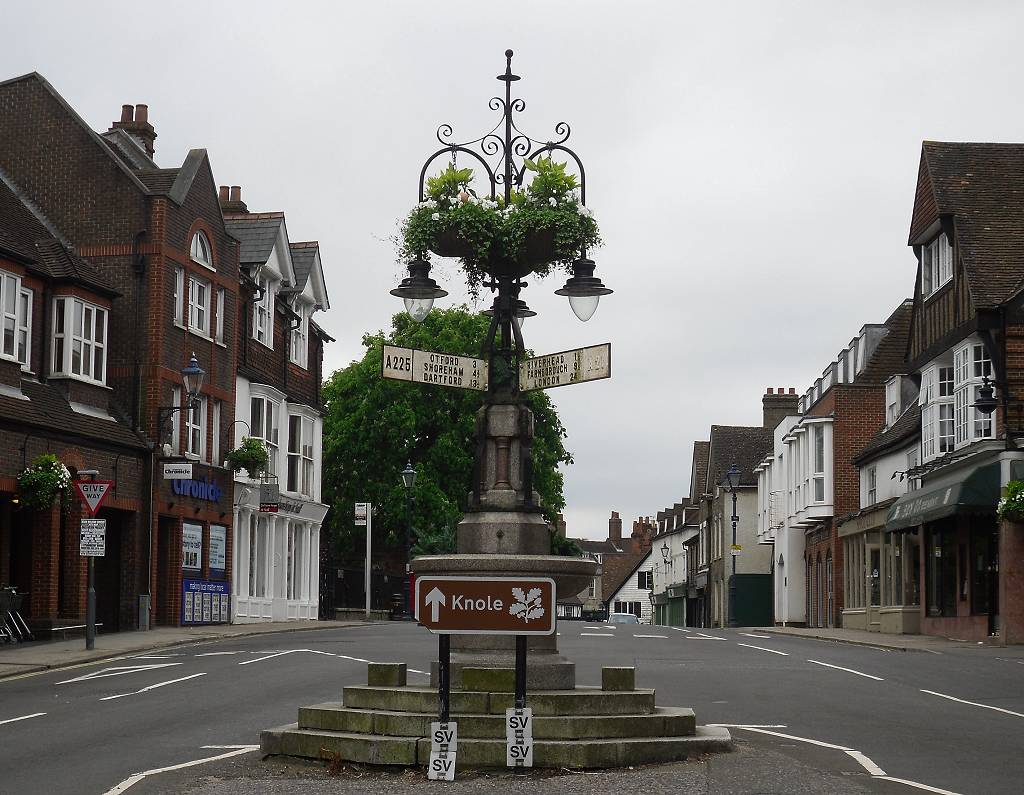
This is the view of the signpost looking toward the south with one of
the arms pointing back towards London just 24 miles
away.


















